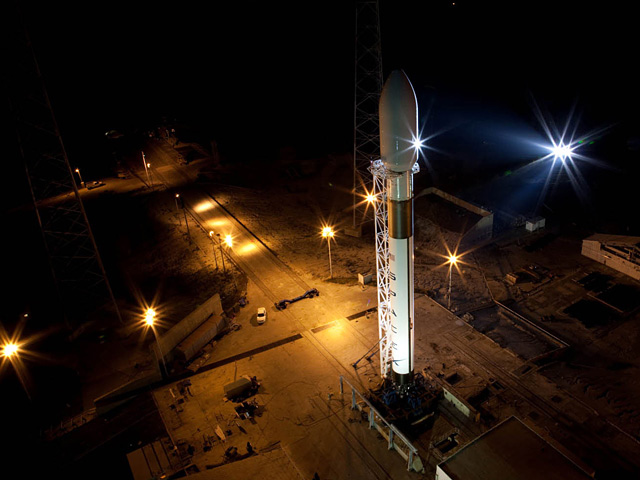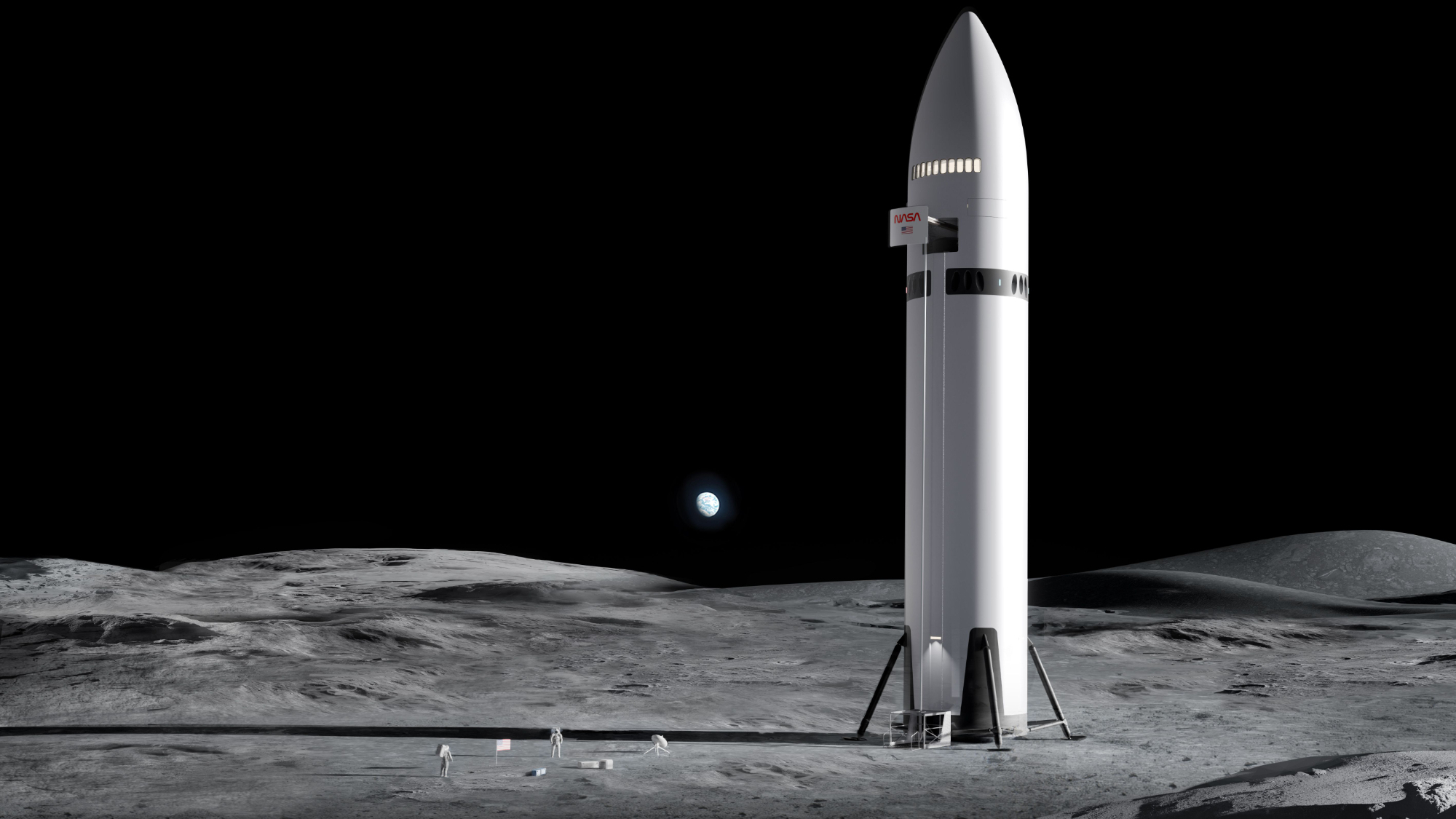Founder of SpaceX Refutes Report Slamming Safety Standards

Breaking space news, the latest updates on rocket launches, skywatching events and more!
You are now subscribed
Your newsletter sign-up was successful
Want to add more newsletters?

Delivered daily
Daily Newsletter
Breaking space news, the latest updates on rocket launches, skywatching events and more!

Once a month
Watch This Space
Sign up to our monthly entertainment newsletter to keep up with all our coverage of the latest sci-fi and space movies, tv shows, games and books.

Once a week
Night Sky This Week
Discover this week's must-see night sky events, moon phases, and stunning astrophotos. Sign up for our skywatching newsletter and explore the universe with us!

Twice a month
Strange New Words
Space.com's Sci-Fi Reader's Club. Read a sci-fi short story every month and join a virtual community of fellow science fiction fans!
A commercial space pioneer and a former astronaut areanswering claims by an independent advisory panel that private companies do notmeet NASA human-rating standards and last year's presidential review of thespace program did not adequately consider safety.
In an annual report released Friday, the Aerospace SafetyAdvisory Panel, or ASAP, said it would be "unwise" to abandon NASA'sAres 1 rocket and turn to private companies to transport astronauts to lowEarth orbit. The board said potential commercial crew transportation providersdo not meet NASA safety standards for piloted vehicles.
Elon Musk, founder and CEO of Space Exploration TechnologiesCorp., said his company's Falcon 9 rocket and Dragon space capsule weredesigned to meet NASA's published human-ratingstandards.
In an interview Monday, Musk responded to the ASAP findingsand recommendations.
"I have to say I've lost a lot of respect for the ASAPpanel," Musk said. "If they are to say such things, then they oughtto say it on the basis of data, not on random speculation."
SpaceX and Orbital Sciences Corp. are developing the Dragonand Cygnus spacecraft, plus new launch vehicles, under a NASA contract todeliver equipment to the International Space Station beginning next year.
The ASAP report said neither company "is [human]qualified, despite some claims and beliefs to the contrary."
Breaking space news, the latest updates on rocket launches, skywatching events and more!
According to Musk, the panel's findings are"bizarre." He says the Falcon9 rocket and Dragon spacecraft "meet all of NASA's publishedhuman-rating requirements, apart from the escape systems."
"They've spent almost no time at SpaceX," Musksaid. "They've not reviewed our data. They have no idea what what ourmargins are, and what is and what isn't human-rated."
The safety panel was established by Congress following theApollo 1 launch pad fire that took the lives of three astronauts in 1967. Sincethen, the board has been an independent voice on astronaut safety issues forNASA.
The Ares 1 rocket is part of the agency's Constellationprogram aimed at returning humans to the moon. The moon program is in danger ofbeing slashed or revamped by President Obama in the coming weeks.
"The Ares 1 is a paper rocket that's far off in thefuture," Musk said. "Falcon 9 is a real rocket, most of which is atCape Canaveral right now."
The Falcon 9 is set for its maiden launch no earlier thanMarch 3, but that is a tentative date and is likely to slip, according toSpaceX officials.
The ASAP report cited the Ares 1 design's emphasis on safetyto back up its findings, saying NASA should not cancel the program unless commercialalternatives are on equal or better safety footing.
The panel also criticized the presidential review team thatlast year presented the White House with eight options for the space program'sfuture. Most of the Augustine commission's alternatives involved scrapping theAres 1 and turning to commercial providers for astronauts in the near-term.
The ASAP report said the Augustine committee made prematureand oversimplified assumptions about safety. Members of the review board saysafety was not in the scope of the Augustine commission's work.
"We did not feel it was appropriate for our committeeto define what should be the specific safety criteria for commercial crewaccess, but that it was up to NASA and other regulatory agencies to make thisdetermination," said Leroy Chiao, a member of the Augustine commission, ina response to written questions.
Chiao is also a former astronaut and a Spaceflight Nowcontributor.
"We stated that commercial crew access should bepursued, with an acceptable level of safety, defined by the appropriateagencies," Chiao said.
The safety panel is chaired by retired Navy Admiral JosephDyer. NASA Administrator Charles Bolden was a member of the board until July,when he stepped down to take the helm at NASA.
- Video - SpaceX: Vision for Manned Dragon Spaceship
- Future of Flight: Space Tourism, Investment and Technology
- SPACE.com Video Show - NewSpace: The Orbital Industrial Revolution
Copyright 2009 SpaceflightNow.com,all rights reserved.
Stephen Clark is the Editor of Spaceflight Now, a web-based publication dedicated to covering rocket launches, human spaceflight and exploration. He joined the Spaceflight Now team in 2009 and previously wrote as a senior reporter with the Daily Texan. You can follow Stephen's latest project at SpaceflightNow.com and on Twitter.
